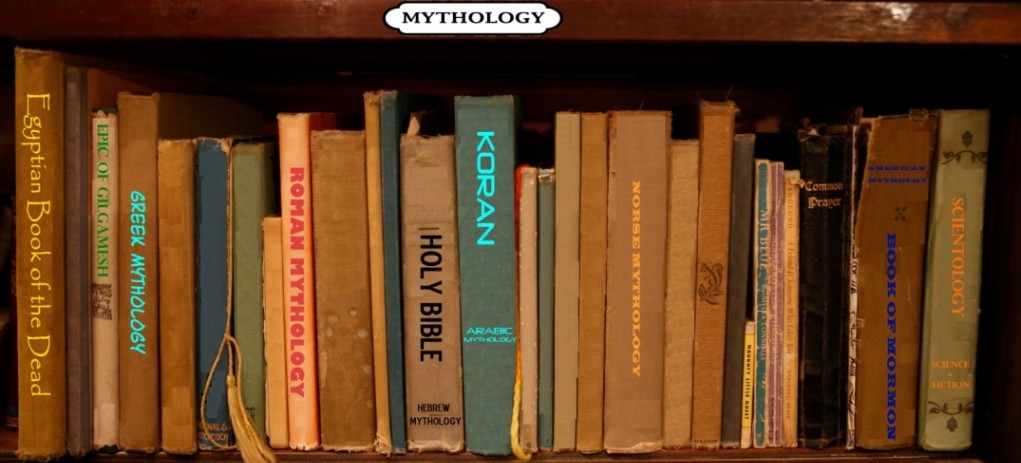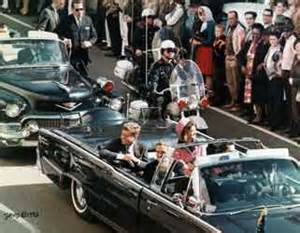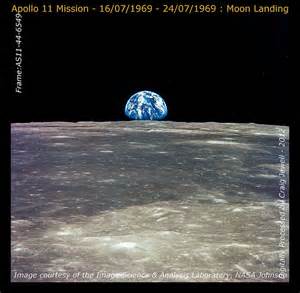
Flashbulb memories are those few significant events, usually of such a national or international impact that they remain forever etched in our LTM (long term memory). We know exactly where we were, what we were doing, how we found out, how we felt and will most likely never lose the vividness of those personal episode details, ever, no matter how old we get.
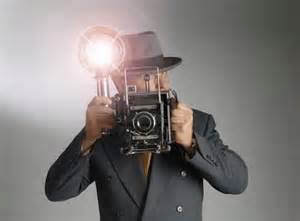
Most of us have one or two per lifetime, I’m lucky enough to have four, though two aren’t pleasant but infamous, one is trivial but extremely satisfying and the other is global and beyond one of a kind.
When I present this topic to my Intro to Psychology freshmen, average age 19-20, you know what theirs is going to be, it defined a generation; 9/11… 2001.
They all know when they first heard, how they found out, what they were doing at the time and exactly where they were and who they were with. Frozen into memory, prolly forever we think. And I tell them I got that one too and a few of us offer the details of their experience and then I tell them my other three:
1. The JFK assassination. We try to remember the date. These young’uns get the early 60’s right, it takes a bit of prompting to get ’63 and November out and finally the 22nd. And I tell them I remember being in Mrs. Calhoun’s 4th grade class in St. Mary’s grade school. A Catholic school so it was an especially big deal because Kennedy was one of us and we heard constantly what a great man he was, read a dozen newspapers every morning, etc.( I imagine he prolly really got extensive press briefings). But it was Camelot and all that. The nuns I’m sure were blissfully unawares of his prowess in other areas (think Marilyn Monroe and others).
So at first when we heard the President was shot, it didn’t sink in right away, at least for me, it was like, “what”? There was no TV to turn to, to make it instantly real and surreal like with the burning towers, the second hit, the listing upper floors, “is that really leaning?” Oh no!
No, we heard about Kennedy from someone who came in the room and then we heard radio reports, not TV, not reporting if he was dead or not for some time long after he was really gone. Very confused, very sketchy, but flashed into memory all the same.
2. The Moon Landing. July 20th 1969. This was the flashbulb of the century. I remember watching the live B/W video from the moon with my parents, sophomore summer of high school, going back and forth from the TV in the living room out the back door thru the garage to the driveway to look up at the moon and back. Unreal, but it was real and exhilarating and very unlike the out of nowhere suddenness tragedy and impossibility of 9/11 or the Kennedy assassination. No, this was planned for months, years of buildup. We’d been watching the astronauts for nearly a decade. Their every move, every liftoff, every splashdown was part of our nearly daily routine every few months for years. So the moon landing was unique as a flashbulb memory for those reasons and that it was nothing but a creator of positive emotion. Truly opposite the horror of a mostly well-loved president taken in his prime with a fatal gunshot to the head, or the abject horror of fearing thousands of people may be dying before your eyes in real time as the towers burned and collapsed. No, the moon landing was exhilarating and so awe-inspiring it still brings tears to my eyes whenever I read about it or watch the films. So it was unique among your average flashbulb memories that cognitive psychologists study and tell us about in the Introductory Psych textbooks.
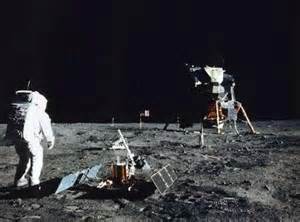
But there was a far greater aspect of the moon landings uniqueness as an internationally awaited event.
It was a flashbulb for all of mankind, maybe the only one, ever.
It was ours, all of ours. Maybe it was our first (and last, so far?) global species-wide event that united us like never before and never since. It was an accomplishment of NASA, of the US, a fulfillment ahead of schedule to Kennedy’s challenge made in May, 1961 just over two years before he was to die, but it was so much more than that.
WE DID IT. So read signs around the world. A flashbulb memory is not merely novel or just unexpected, nor necessarily tragic but it is emotional. And this one tapped an emotion in people all over the globe. Nearly 30 million households in the US had their TV’s on for the moon landing and another 10 million homes were expected to watch a man, watch man step onto the moon’s surface for the first time that nite. This out of a population of just over 200 million Americans.
And possibly 70 million of Japan’s total population in 1969 of 100 million witnessed the events live on TV. All over the world streets were less busy if not deserted as people crowded into bars and hotels to watch. When Mike Collins the commander of the service module that stayed in orbit while Armstrong and Aldrin landed visited Italy afterwards he was labeled “the Roman” for having been born there. Italians took delight in that one of them went to the moon.
“It is said science will dehumanize people, that is false, tragically false.” – Jacob Bronowski
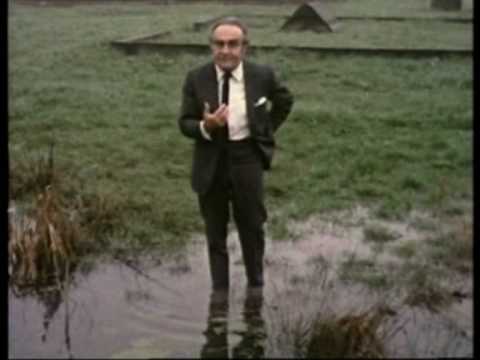
Religions and political ideologies dehumanize people, not science. Science tells us we are all the same, we use the same DNA, genes, proteins, tissues, organs, bones and limbs. We think and feel with the same neurons, neurotransmitters and brains. And working together in our most democratic, egalitarian and human of activities; science, we unite with each other in the myriad and multiple daily accomplishments in the lab, however minor, and in the grandiose and hugely co-operative endeavors of imagination like the unparalleled moon landing.
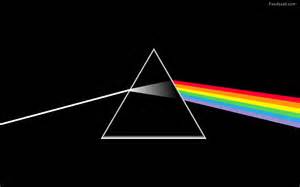
3. Appropriately, the last flashbulb I tell my students about was sophomore summer of college this time, June 1973, planting shrubs and bushes around a house for the nursery I worked for and inside the teenage girls were loudly playing their stereo with the widows wide open to the early Summer warmth…
The first time I heard Dark Side of the Moon, Pink Floyd, released just a few months before.
“All that you touch, All that you see, All that you taste, All that you feel…” Roger Waters lyrics united us then, still do…
Neil Armstrong and Buzz Aldrin on the moon.
One Species, One Tribe. We need another flashbulb, like this one.
(522)
